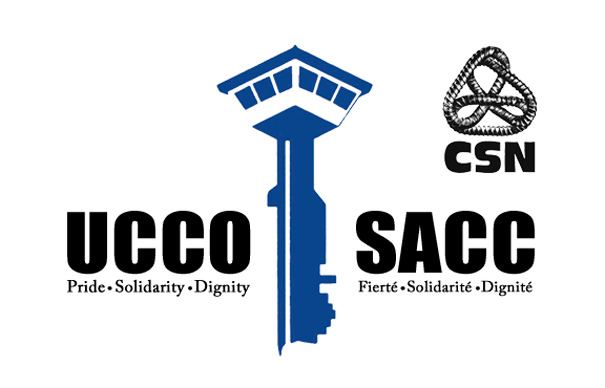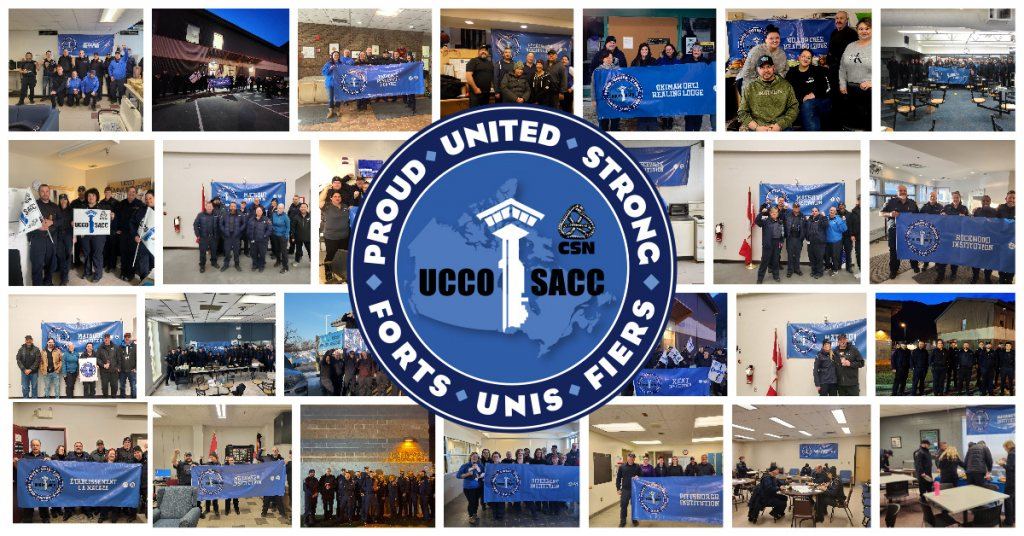Following the holiday season, the National Executive met in Ottawa for the National Executive and the National Labour Management Committee meetings. We would like to thank Brandon Belluz from Kent Institution who sat with us as an observer during that busy week. The next generation of union leadership is alive and strong. Here are some important updates from the labour management table.
FTE’S Funding and Deployment Bulletin
The CSC is seeking final approval with the Treasury Board for the funding of extra FTEs agreed upon during the summer and fall deployment reviews. We received the draft site deployment sheets for all sites which have been affected by this review and locals affected by this review can now use these site deployment sheets to begin work on schedule changes to be implemented in the fall. In addition, we continue our work with the employer to update the deployment bulletin. This is an important labour relations bulletin that guides the deployment process.
Staffing issues in the minimum sector (ONT Region)
The Ontario region does not want to staff true vacancies at some minimum sites for obscure reasons which do not respect our agreements with CSC. This poor management only serves to aggravate labour relations. We are working with National Headquarters to make certain the region respects our agreements.
Update on Gloves and Our Dual Threat Vest
The pilot project on the gloves has been completed. From the feedback received, the HexArmour gloves are the favoured option. We have been advised that the procurement process has begun for these new gloves which will provide protection against needlestick injuries and maintain the specifications of our current glove. CSC has advised us that they have extended the contract with the company that produces our current vest for a year to allow CSC and Public Service Procurement Canada to properly prepare the technical specifications for our next vest which will be dual threat and include ceramic weapon protection. No correctional department or police force has a vest with these components combined. We will keep you posted on the progress of these projects.
Dry Cells and Body Scanners
You may have had a chance to read or watch the highlights of the Correctional Investigator’s report on dry cells. As we know, there is a current appetite from the government to introduce a 72-hour cap on the time an inmate can spend in dry cells, stemming from pressure from various prisoner interest groups. We are working with CSC and the office of the Minister of Public Safety to ensure that this tool remains viable, as it is an important measure to combat drug interdiction. CSC is still working with Public Service and Procurement Canada to develop a standing offer to purchase body scanners for the remainder of our institutions. In addition, we were informed that the draft regulations will be posted in the gazette for feedback at the end of March. The union will intervene in this consultation to make certain these new tools have the desired effect to prevent drug interdiction and help with issues around cross gender searching. We continue to push hard for this very important tool and an expedited procurement.
Methadone, SUBOXONE and Others
We met twice with the Assistant Commissioner of Health Services and members of her team to follow up on a report from the Ontario Regional Health and Safety Representative regarding the distribution of medication, specifically methadone, SUBOXONE and other medications which require direct observation. As we see an increase in the number of inmates prescribed methadone and SUBOXONE, we are experiencing significant operational strain. We asked questions around the ability to replace these treatments with the SUBLOCADE treatment as it would ease the stresses surrounding operations. The employer signaled that they were evaluating this issue in a working group and would follow up with us on the results. The ACHS also stated that all interim medication dispensing directions, surrounding DOT medications, that were issued during the height of the pandemic, should now be back in pre-pandemic direction. We will be following this issue with the health services with great attention. Health sector needs to remember that we are in a penitentiary and not in a hospital. Security and the safety of staff will always be our top priority.
Guard of Honour
This point was raised at the National Labour Management Committee with the Commissioner. We discussed the underfunding of the Honour Guard, the gaps in their training, their leave with pay as well as the costs associated with performing this extra duty (travelling, dry-cleaning, etc.). We have asked the Commissioner to work with the union in developing a written guide for the Honour Guard to help resolve some of the issues. We will have more discussion on this matter.
Employee Recognition
The union and the employer have created a subcommittee to begin discussions on ways the employer can recognize valued work and more specifically work that has been done by our members who go beyond the call of duty. In an era that seems to be defined by negativity and an increased use of the disciplinary system, a more positive direction is required, and we hope that the employer takes this opportunity to develop better ways to serve their employees.
In Solidarity,
Your National Executive

